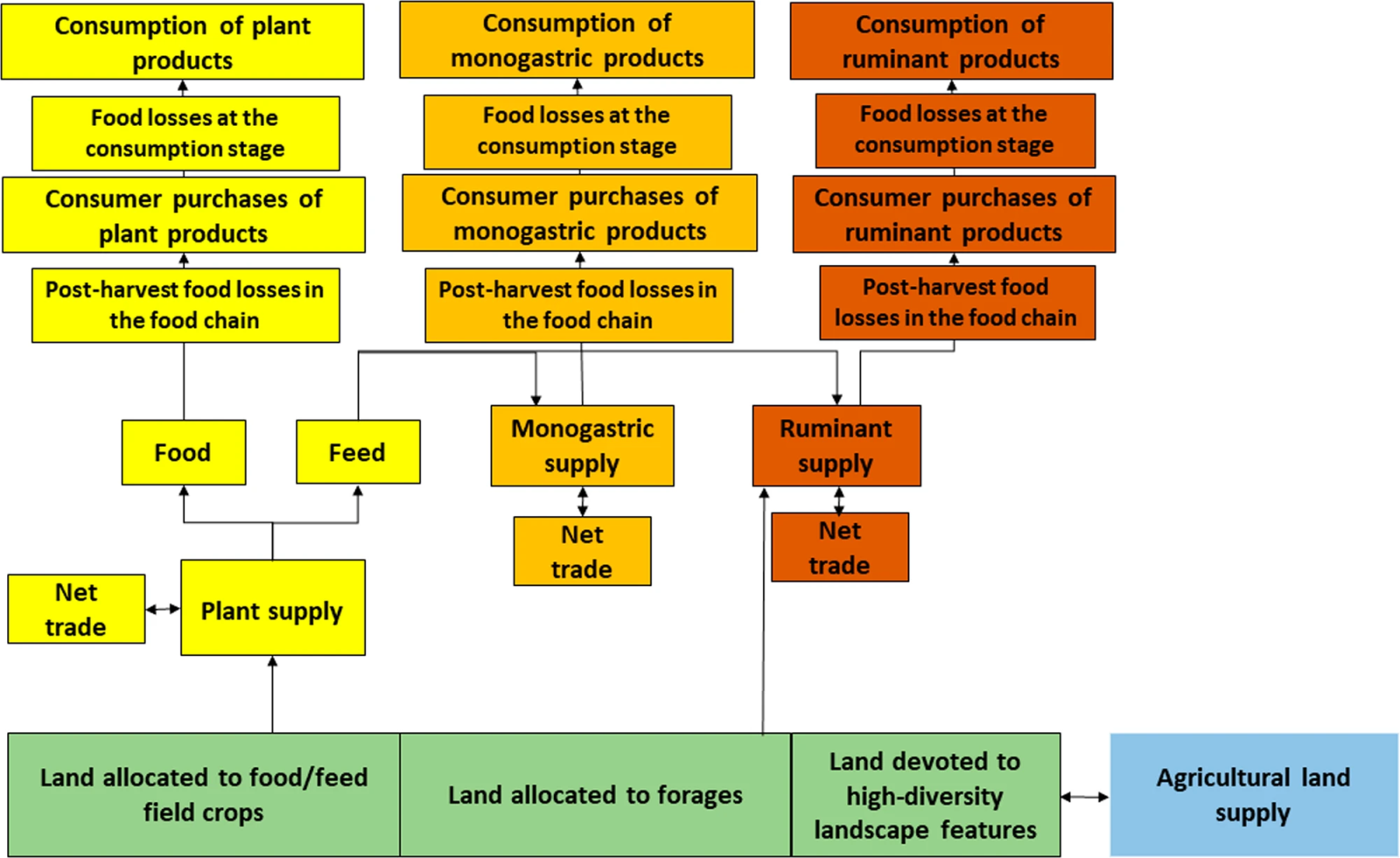The European Green Deal Improves the Sustainability of Food Systems but Has Uneven Economic Impacts on Consumers and Farmers
October 7, 2023 | Communications Earth & Environment |
Introduction: EU established the policy program called The European Green Deal in 2019, aiming to create a fair, healthy, and environmentally friendly food system. To assess the impacts of this initiative, a partial equilibrium economic model was developed by France's National Research Institute for Agriculture, Food and Environment (INRAE). The model focuses on three main strategies: reducing chemical inputs in agriculture, minimizing post-harvest losses, and promoting healthier diets with fewer animal-based products.
Key findings: The study emphasizes that achieving significant improvements in climate, biodiversity, and nutrition necessitates the simultaneous implementation of all three measures. This integrated approach could result in a 20% reduction in greenhouse gas emissions from food consumption and a 40–50% decrease in biodiversity damage. Consumers benefit economically through lower food expenses, but livestock producers experience declines in quantity and price. Positive impacts on revenues for food/feed field crop producers depend on the balance between increased food consumption and reduced feed consumption.

Fig. | Structure of the partial equilibrium economic model.
Viewed Articles
October 7, 2023 |  Communications Earth & Environment |  Introduction: EU established the policy program called The European Green Deal in 2019, aiming to create a fair, healthy, and environmentally f
Read More
November 28, 2024 | Science | Source |  Introduction: At the 2023 COP28, the Emirates Declaration recognized the critical role of agrifood systems in addressing climate change. With over 160 countries
November 1, 2021 | Nature Reviews Earth & Environment | Source | Introduction: An international research team from Australia, USA, Singapore, UK and Saudi Arabia, led by Deakin University (Australia)
November 12, 2024 | Sustainability Science |  Introduction: This review, conducted by an international research team from Queensland University of Technology and the University of Queensland in Austra
November 13, 2024 | Nature | Source |  Introduction: Researchers from Shandong University (China) and the University of Maryland (USA) investigate the global distribution of environmental footprints a
September 2, 2021 | Nature Food | Source |  Introduction: An international team led by the University of Copenhagen, with collaborators from the US and Germany, reviews the global spread and impacts o






